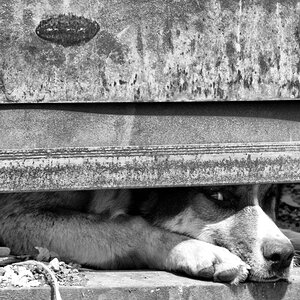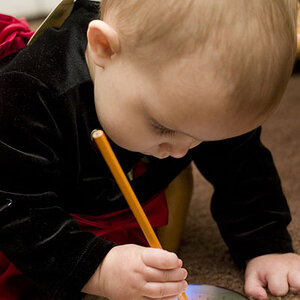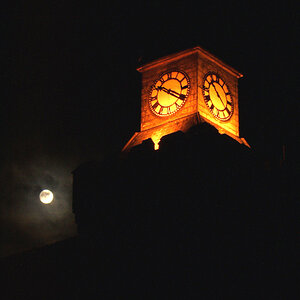A
astrostu
Guest
As part 0.3 (third question before my official question) of my lens-buying plan: What are your philosophies on buying lenses in terms of, (a) do you save up and buy the best possible lens, or (b) do you upgrade to a better lens than you have but that's not top-of-the-line?
For example, I'm aiming to get four lenses to be my standard lenses: An ultra-wide-angle zoom, a wide-standard-telephoto zoom, a telephoto zoom, and a standard portrait. But this thread is not about the first and last, rather mainly the middle two.
For the wide-standard-telephoto, I'm looking for something in the range of 24-70 mm. As I see it, I've narrowed my choices down to about three: A Canon 24-85 mm f/3.5-4.5 USM, a Sigma 28-70 mm f/2.8, or a Canon 24-70 mm f/2.8L USM. The first and second are in the range of $300, the last is more like $1100.
For the telephoto, I'm looking at the Canon 70-200 mm f/4.0L USM, the 70-200 mm f/4.0L IS USM, or the 70-200 mm f/2.8 USM, or the 70-200 mm f/2.8 IS USM. The first is around $500, middle two around $1100, and the last $1700.
Looking at the current lenses I have (see signature line), any/all of these would be an upgrade. But, I'm trying to cap my photography budget at ~$1k/year. So what are folks' philosophies? Do you buy an upgrade lens and have fun with your new toy and learn how to use all its fun features and what it allows you to do, or do you wait 3x as long and buy "the best" out there?
Note that I'm not looking for specific advice on the lenses I've identified above, that's for a later thread.
For example, I'm aiming to get four lenses to be my standard lenses: An ultra-wide-angle zoom, a wide-standard-telephoto zoom, a telephoto zoom, and a standard portrait. But this thread is not about the first and last, rather mainly the middle two.
For the wide-standard-telephoto, I'm looking for something in the range of 24-70 mm. As I see it, I've narrowed my choices down to about three: A Canon 24-85 mm f/3.5-4.5 USM, a Sigma 28-70 mm f/2.8, or a Canon 24-70 mm f/2.8L USM. The first and second are in the range of $300, the last is more like $1100.
For the telephoto, I'm looking at the Canon 70-200 mm f/4.0L USM, the 70-200 mm f/4.0L IS USM, or the 70-200 mm f/2.8 USM, or the 70-200 mm f/2.8 IS USM. The first is around $500, middle two around $1100, and the last $1700.
Looking at the current lenses I have (see signature line), any/all of these would be an upgrade. But, I'm trying to cap my photography budget at ~$1k/year. So what are folks' philosophies? Do you buy an upgrade lens and have fun with your new toy and learn how to use all its fun features and what it allows you to do, or do you wait 3x as long and buy "the best" out there?
Note that I'm not looking for specific advice on the lenses I've identified above, that's for a later thread.









![[No title]](/data/xfmg/thumbnail/35/35956-7047189d31e1c1f6029266079390f54a.jpg?1619737269)





![[No title]](/data/xfmg/thumbnail/35/35264-5ade32b7036391926536661aeb7491c3.jpg?1619736969)
